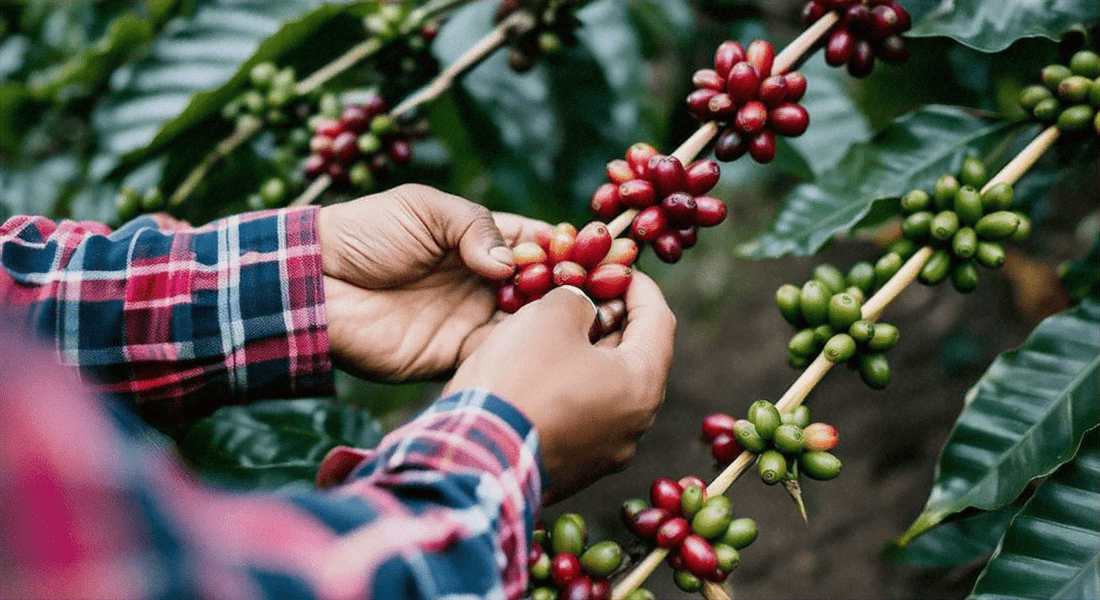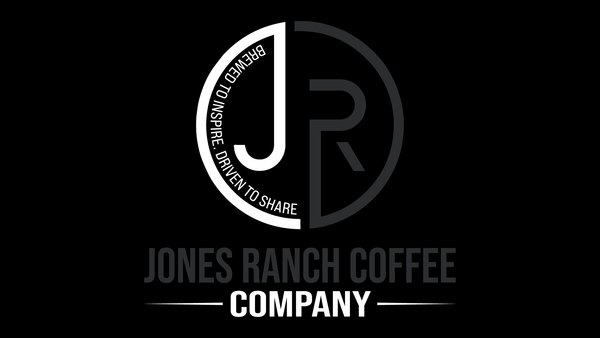
Farm To Cup: A Behind-the-Scenes Look at Our Supply Chain
Share
When you think of coffee, you likely think of the rich, aromatic brew waiting for you each morning. But the journey your coffee takes before it reaches your home is far more intricate and fascinating than most people realize. Our supply chain isn’t just about getting coffee from point A to point B. It’s about creating a system that values transparency, ethical sourcing, and sustainability every step of the way.
Sourcing Coffee from the Best Regions
At Jones Ranch Coffee, we pride ourselves on sourcing beans from the most reputable coffee-growing regions in Latin America. These areas, known for their ideal growing conditions, produce some of the world’s finest beans.
Colombia: Coffee from Colombia is world-renowned for its balance of acidity and sweetness. Colombian coffee farms, especially those in the highlands, produce beans that are fruity and rich, thanks to the region’s unique altitude and climate.
Guatemala: The high-altitude regions of Guatemala, such as Antigua and Huehuetenango, produce coffee with a distinct flavor profile. Here, you’ll find beans with bright acidity, chocolate notes, and a complexity that sets them apart.
El Salvador: In El Salvador, volcanic soils provide the perfect environment for growing full-bodied coffee with smooth, balanced flavors. The country’s coffee-growing regions are known for their meticulous attention to quality.
Honduras: While often overlooked, Honduras has emerged as a major player in the coffee world. The country produces beans with sweet, fruity notes and a creamy body, making it a hidden gem for coffee lovers.
Peru: Peruvian coffee is known for its subtle sweetness and smoothness. Beans from the high-altitude farms in Peru often feature floral and fruity undertones, adding depth to your coffee experience.
Each of these regions provides something unique, and that’s what makes our selection so special. By sourcing from such diverse environments, we’re able to offer a wide range of flavors and experiences to our customers.
The Role of Direct Trade and Ethical Sourcing
One of the pillars of Jones Ranch Coffee’s philosophy is our commitment to Direct Trade and ethical sourcing. We work closely with the farmers who grow our beans, building relationships that benefit both the farmers and the final product.
What is Direct Trade?
Direct Trade means that we work directly with coffee growers rather than going through middlemen or large corporations. This not only ensures that the farmers receive fair compensation but also allows us to have more control over the quality of the beans we purchase.
For the farmers, Direct Trade offers stability and a sustainable income. It allows them to invest back into their farms, improve their cultivation methods, and ensure the long-term health of their land. This relationship is a win-win for both us and the farmers, as it guarantees high-quality beans for Jones Ranch Coffee while supporting sustainable farming practices.
Transparency in the Supply Chain
Transparency is a critical component of our supply chain. Our customers want to know where their coffee comes from, and we want to show them.
Through the use of blockchain technology, we’re able to provide detailed information about the journey of our beans—from the farms in Colombia or Guatemala to the roaster and finally to your doorstep. This technology allows us to track the entire process, ensuring that the coffee you enjoy was sourced and handled with the utmost care and attention to quality.
By using blockchain, we give you a transparent view of the coffee’s journey. You can know the origin, processing methods, and even the farmer who grew the beans.
Sustainable Practices Across the Supply Chain
Sustainability is another cornerstone of our operations. From the way the beans are cultivated to how they’re packaged and shipped, every part of the process is designed to minimize environmental impact.
On the farms, our partners use sustainable farming methods such as shade-grown coffee and eco-friendly water conservation practices. Shade-grown coffee helps preserve biodiversity, as it is grown under the natural forest canopy, reducing the need for deforestation.
During the processing phase, we partner with facilities that use water-saving techniques like eco-pulping, which significantly reduces the amount of water used during coffee processing. This ensures that we’re not only producing high-quality coffee but doing so in a way that respects local ecosystems and resources.
Finally, our packaging is designed with sustainability in mind. We’re constantly researching and implementing ways to reduce waste, using recyclable materials for our coffee bags and exploring biodegradable options for the future.
The Final Steps: Roasting and Shipping
Once the beans have been sourced, processed ,they undergo a meticulous roasting process. The coffee beans are roasted in small batches in their country of origin to ensure that each one is handled with care and precision. This allows us to preserve the unique characteristics of each origin.
After roasting, the beans are carefully packaged and prepared for shipment. Whether you’re ordering a single bag or subscribing to a monthly delivery, we make sure that your coffee arrives as fresh as possible.
Our shipping practices are designed to be efficient, ensuring that the coffee goes from roasting to your home with minimal delay. We want you to experience the same quality and flavor that the farmers worked so hard to produce.
